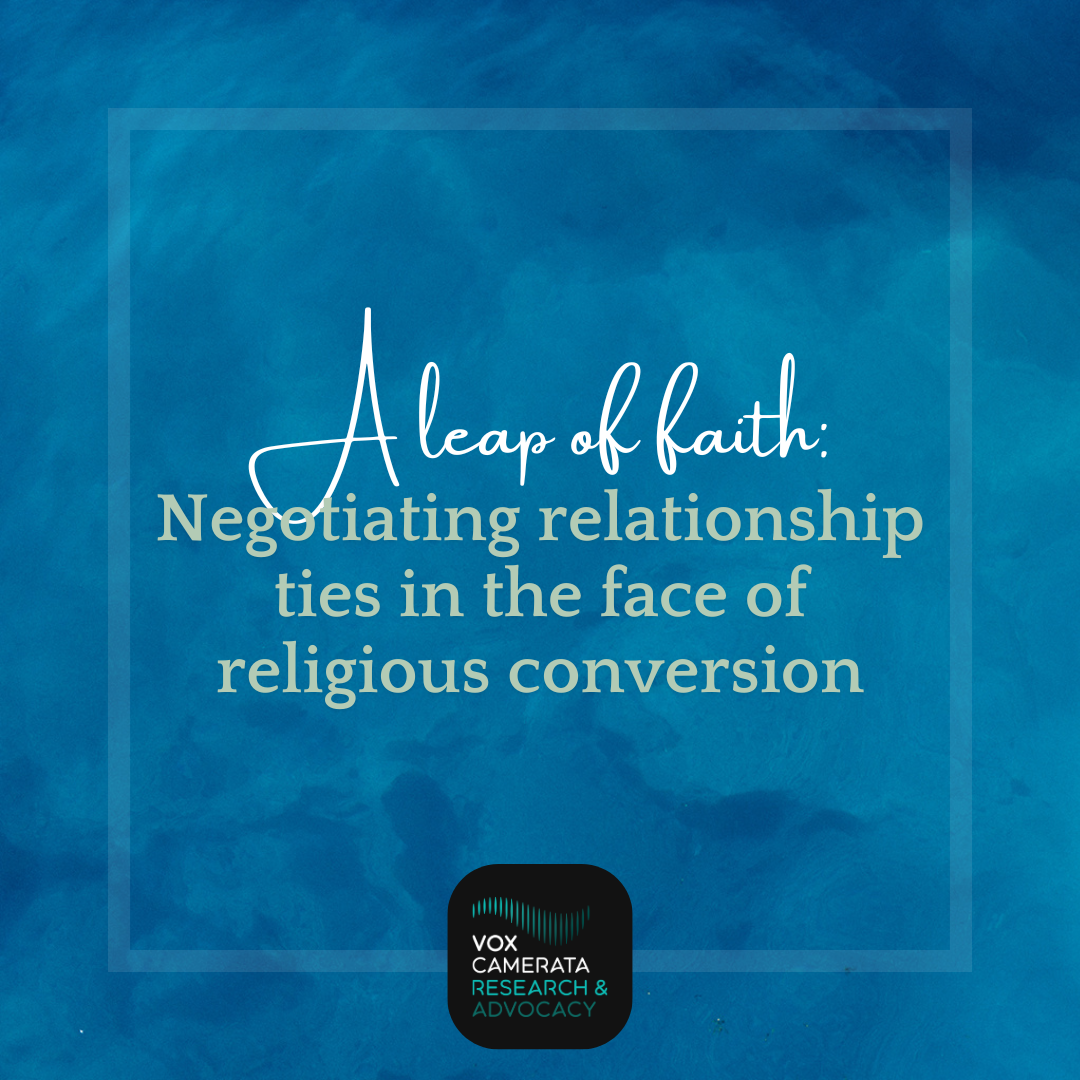A Leap of faith: Negotiating relationship ties in the face of religious conversion

(Vox Camerata’s founder and artistic director Dr. Shahril Salleh takes a moment to reflect on recent conversations with newer members, and how having a place and people to talk to is key in helping to find ways to overcome personal and familial challenges.)
Balancing faith and personal relationships can be challenging, and sometimes especially so when you’re trying to find your own spiritual pathway that may eventually differ from loved ones and those around you.
Vox Camerata is one of the many organizations that serves Singapore’s landscape of inter-culture and inter-faith through our advocacy and the use of performing arts as a platform for discourse and conversations. Internally, we see ourselves as a space of nestled communities, where each choir and program under our umbrella has its own macrocosm of people involved. Each of them is connected to their own communities, and each brings with them a wealth of experiences and perspectives that, when shared, gives us new and novel perspectives on the practice of fostering an inclusive and safe inter-cultural and inter-faith space. These sharings often happen in our down time between activities when we break bread and catch up on what’s happening in our lives and our interests.
Recently, and quite serendipitously, I’ve had the pleasure of meeting two individuals who joined the rank of voxxies (a term we call ourselves). Both in their early twenties, and when I met them individually for a meal, both shared with me their ongoing spiritual journey of leaving the faith they were born into and embracing Islam. Part of the reason that they were attracted to join Vox Camerata was the work that we do in creating artistic platforms to discover and appreciate culture and faith. They were also eager to speak to people who might be able to give them perspective and insight on how they can manage the expectations and reactions of friends and family when they learn of their re(con)version*. A big part of this is about a fear of rejection and disappointment from their parents- Both have a close and loving relationship to their parents, and they fear their religious pursuits may irreparably damage this bond.
As I listened and acknowledged their concerns, I asked what they hoped the intended outcome would be. Each of them said that they wished to continue to have that loving relationship with their parents, and at the same time the space to pursue and practice their religious convictions. My response to both was this:
“Letting your parents know about religious conversion shouldn’t be an announcement you make. Instead, it should be a series of long on-going conversations. Throughout these conversations, you would need to give your parents time to ask questions, to listen to their concerns, to understand where they are coming from, and to give them opportunities to know more about how and why you want to embrace a new faith. You need to continually and consistently let them know that you want to continue to have a deep and loving relationship with them even though your faith will differ. Ultimately, you will need to give them time to let them feel what they feel, and to come to terms with this new change. For many people, religion is a deeply fundamental part of a person’s identity and their connection to their family and community. Any changes to faith can be regarded as seismic and traumatic because they may feel that this will disrupt, or sever said connections between you and them, and you and your community.
Hence, the best way forward is to sit them down, assure them that you will continue to love and honor them as your parents, and to be present and answer any questions that they may have. Remember to be both brave and compassionate- brave to find the feet to pursue your Truth, and compassionate because they need all the support they can find to come to terms what’s going on.”
I assured both that I will always make space to talk to them if they need someone to talk to, and also to remind them that there are many resources available to them that they can utilize, especially the wonderful people at the Muslim Converts’ Association of Singapore (Darul Arqam). I also told them that they should meet one another and perhaps support one another through their common journey. I’m also glad (and humbled!) that they chose to share their journey with me, and this gives me hope that we as individuals in Singapore society, can find the courage to talk through difficult things together in hopes of a better outcome and resolution.
*Conversion / Reversion is an interchangeable term used by individuals who have chosen to embrace Islam later in life. This stems from the ideological belief that a person does not convert, but instead ‘returns’ to the faith.
Shahril Salleh (Dr.) is a social scientist researching the cultural formation of the arts in Singapore, with a focus on how agency is imagined and enacted within the confines of the state. He is passionate about advocating for cultural workers as well as championing community music-making in Singapore. Shahril is the founder and Artistic Director of Vox Camerata.

